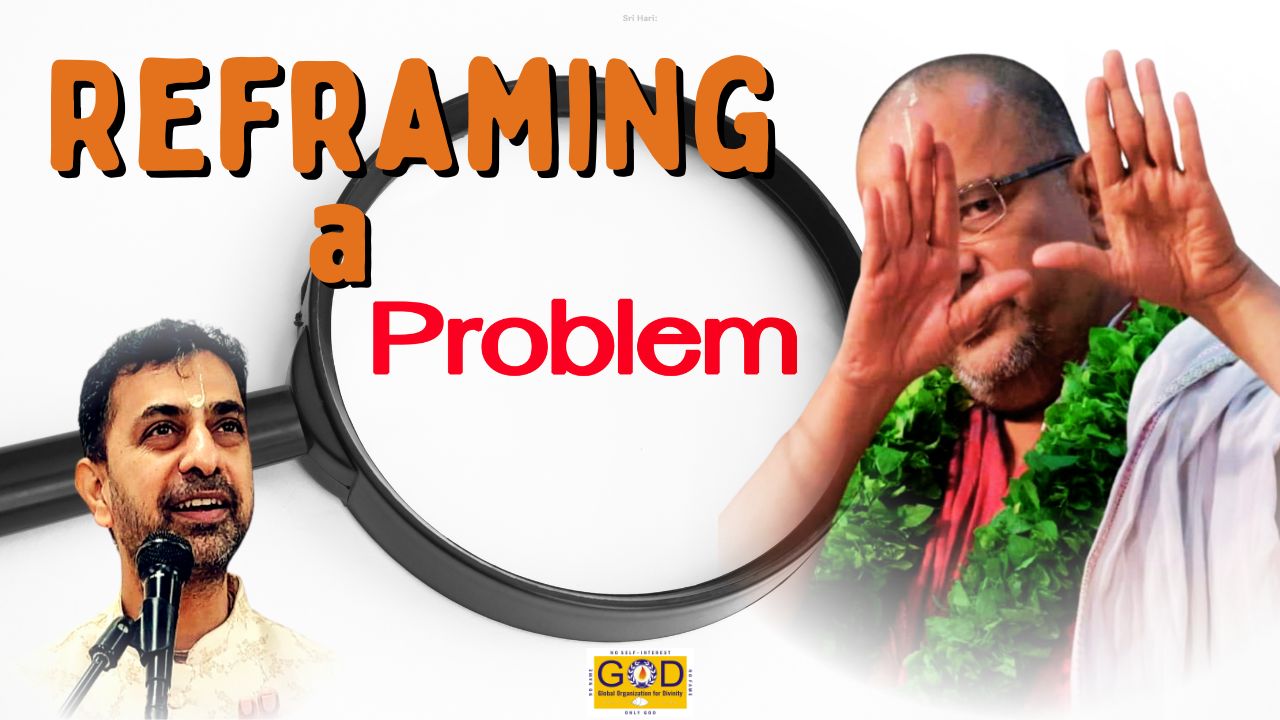Based on Sri Ramanujamji’s youth discussion sessions.

In this talk, Ramuji shares a simple but meaningful idea: many problems in life can be better understood, or even solved, by reframing the question we are asking. He begins with a simple example from the corporate world: when people complained that an elevator is too slow, the actual issue turned out to be, not the speed of the elevator itself, but the experience of waiting. So instead of investing in speeding up the elevator, potentially leading to higher costs, the problem was reframed into “How do I make people feel less restless while waiting?” The solution used simple, elegant, and economic – They placed mirrors in the lobby. People naturally engaged with their own reflection, felt less impatient, and the complaints stopped. The elevator remained the same, but the perspective changed, making the solution much simpler.
Ramuji then connects this idea to a moment from a recent Bhagavatam session in Chennai with our Sri Swamiji. Students of various Bhagavatam teachers had gathered, and as always, Sri Swamiji invited questions from the group. One student asked a question: “God is common to everybody. Bhagavan Sri Krishna is common to everybody. So everybody should get the bhagyam or fortune of reading Bhagavatam, isn’t it? Why is it that only a few of us are actually getting this fortune? Why are the rest excluded?”
Rather than addressing it directly as a comparison between people, Sri Swamiji gently reframed the question. “Instead of a ‘person’ question”, as Ramuji put it, “our Swamiji beautifully reframed the question as a ‘time’ question.” The focus shifted from “Why me and not others?” to “Why now?” That is, why am I getting this opportunity now, and not in some earlier part of life or in a past janma?
Sri Swamiji explained that the fortune of reading Bhagavatam comes through the merits gathered over many lifetimes. As the shastra says:
“koṭi janma samutthena puṇyena eva tu labhyate”
(It is attained only through the merits accumulated over crores of births)
By reframing the question this way, the underlying tone of fairness becomes clearer. The focus is no longer on comparison, but on gratitude and timing. When we ask, “Why me?”, we often create a subtle sense of inequality or judgment. But when the question becomes “Why now?”, it suggests that others too will receive the same blessing in time—it’s just a matter of when, not if.
Many of the problems we face, whether in spirituality or in everyday situations, can feel lighter if we stop viewing them as burdens and start seeing them as questions that simply need answers. In Ramuji’s words: “A problem is a practical, real-world question which inspires us, or provokes us, to seek an answer.” If we treat a problem simply as a question that needs an answer, without attaching any additional emotional baggage, the burden becomes lighter and the solution becomes more approachable.
Rithwik Raman, Glen Allen, VA






